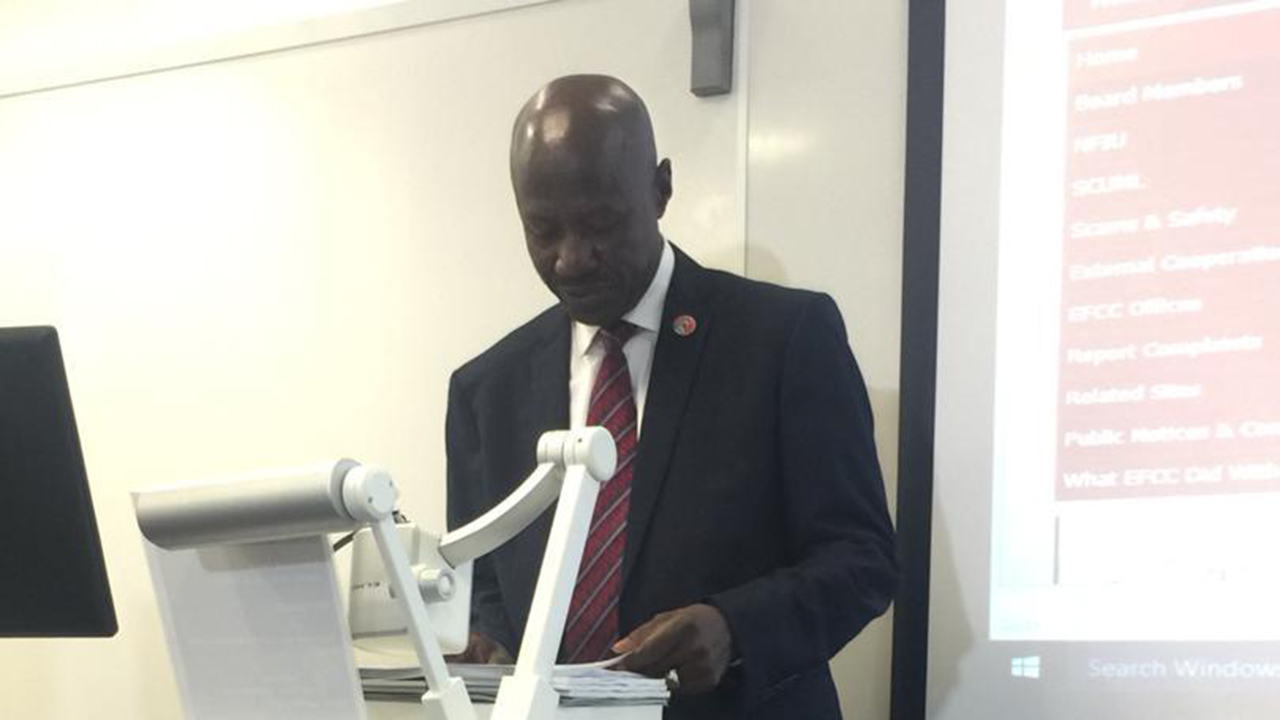
This is coming barely 24 hours after ABCON launched its “Live Run Automation Project”, in Lagos, a platform integrated with Nigeria Inter-bank Settlement System (NIBSS), Nigeria Financial Intelligence Unit (NFIU), and Central Bank of Nigeria (CBN) designated systems, to enhance BDCs compliance with set regulations, promote market integrity, and sustain transparent transactions.
Speaking during a sensitisation programme at the Murtala Muhammed Airport 2 (MMA2), Lagos, the two organisations said the campaign was aimed at raising the level of awareness on the ugly development currently dogging economic activities.
EFCC Chairman, Ibrahim Magu, at the event attended by Bureau de Change (BDC) operators, called for continuous sensitisation on issues around AML/CFT reporting, to improve transparency in their operations.
The campaign came as suspicions were rife that BDCs were being used for illicit political transactions, illegal border cash evacuation, suspicious transactions, fraudulent accounts transactions, and cash dollar deposits on domiciliary accounts.
The choice of MMA2 was allegedly favoured because the centre remains a major spot for illegal funds transfer and border cash evacuation in Nigeria.
ABCON President, Aminu Gwadabe, said the sub-sector is part of the financial system, but seen as the weakest link.
He reiterated appeal to the regulators to approve the group’s request for the establishment of the institute’s training centre, and building capacity of over 4,500 BDC operators for better understanding of the menace of money laundering and terrorism financing.
Gwadabe, said the anti-money laundering sensitisation programme was meant to familiarise operators with the process of money laundering – the criminal business used to disguise the true origin and ownership of illegal cash – and the laws that make it a crime.
Gwadabe said that the programme was also meant to help BDCs maintain minimum standard of record keeping and increasing level of investors confidence for the economy.
He said the group will continue to pursue Nigeria’s admission into the Financial Action Task Force (FATF), an inter-governmental body established in 1989, to generate the necessary political will to bring about national legislative and regulatory reforms on AML/CFT, due this year.



